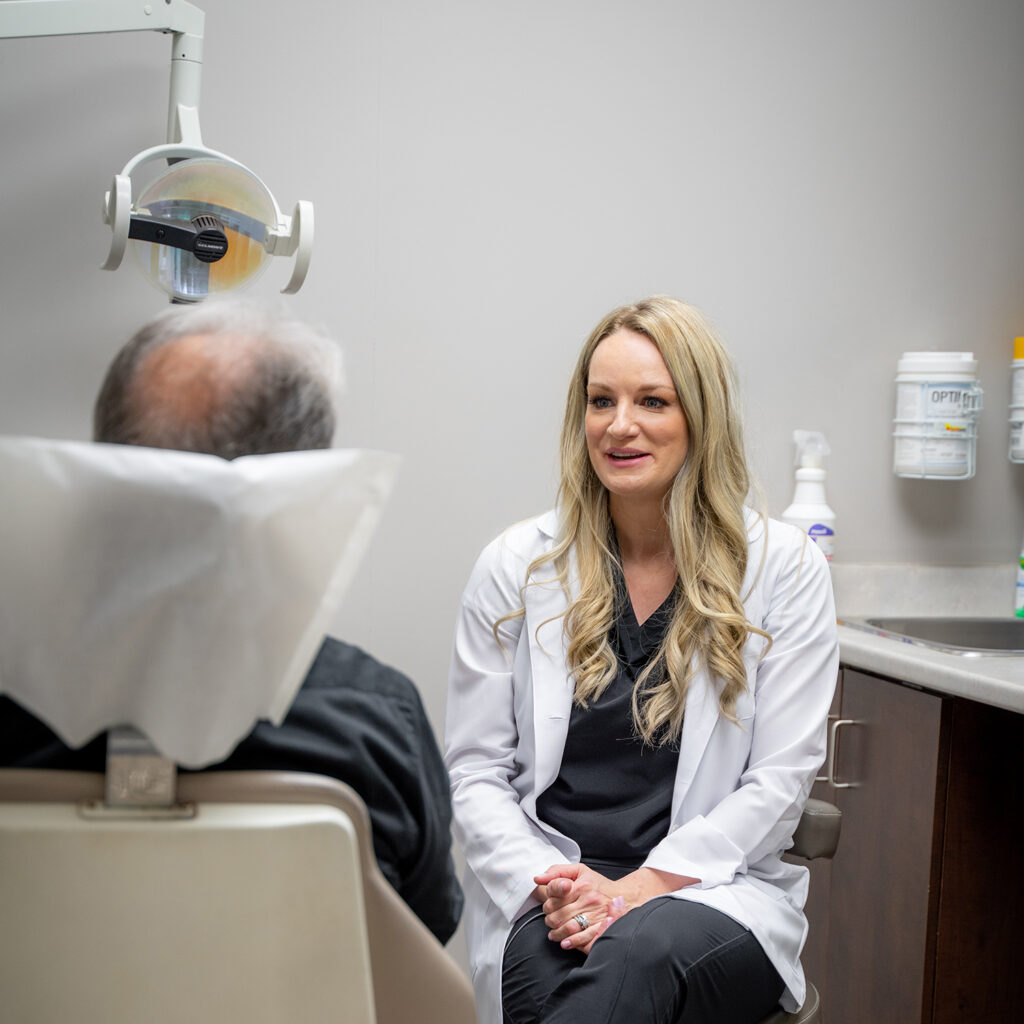If you are hoping to get your smile back and restore your appearance, dentures are a fantastic option. However, at first, it can be really hard to adjust to having a foreign object in your mouth.
The good news is that there are a few things you can do to get used to these new dental devices. In this blog post, we will provide you with five great tips for adjusting to life with your new dentures.
Getting New Dentures
Custom-made dentures are dental appliances intended to replace lost teeth and improve your smile. You could go for full dentures, which replace every tooth in the upper or lower jaw, or partial dentures, which cover the spaces created by one or more missing teeth, depending on your needs.
Dentures are made to resemble real teeth and gums and are made from durable materials such as metal and acrylic. They are required for a number of reasons. These devices assist with speech and chewing, two functions that can be limited by tooth loss.
They can help support facial muscles, preventing your face from becoming sunken, and they keep your natural teeth from shifting out of place.
We will walk you through the process and provide sound guidance to protect and enhance your oral health.

Tips to Help You Get Used to Your New Dentures
The reality is that many first-time denture wearers do not realize that it takes time to fully adjust to the use of these dental devices. Dentures can feel foreign and uncomfortable.
The good news is that by following a few simple steps, you can improve your overall experience and speed up the adjustment process. So, without further ado, here are our top tips for adjusting to life with dentures:
1. Give It Time
It’s important to set realistic expectations and understand that first pair of dentures require an adjustment period. That’s because your gums, tongue, and facial muscles are not used to having a full set of teeth again, so wearing dentures might seem foreign.
Everyone is different, so it could take days, weeks, or even months for you to adjust. Don’t get discouraged if you notice some soreness or difficulty eating. This is normal. Give yourself enough time to adjust.
We recommend starting slow and wearing your dentures for short periods of time each day. As you start to adjust, increase usage gradually. You can also use speaking exercises to help you get used to talking while wearing your dentures.
2. Choose Soft Foods and Chew Carefully
Many first-time denture users struggle with chewing and eating. To avoid this, we recommend eating soft foods that are cut up into small pieces to make them easier to chew with your dentures.
This will give your gums and jaw muscles time to adjust without causing them undue stress. As you become more accustomed to eating with dentures, add different textures.
We also advise against eating sticky or chewy foods, as they can get stuck to your dentures and create an uncomfortable situation.
3. Take Care of Your Teeth
To avoid gum disease and other complications, it’s crucial to pay attention to your oral care. Make sure that you are taking care of your dentures and cleaning them correctly. Here’s what you can do:
Brush Your Dentures Every Day
Make sure that you are brushing your dentures regularly using a soft bristle toothbrush and designated denture cleaner. This will prevent the growth of bacteria and prevent bad breath and irritation.
Don’t Forget Your Natural Teeth
Your natural teeth also need to be cleaned regularly, so don’t forget about them! Use a soft bristle toothbrush to clean your teeth, gums, and tongue to prevent the buildup of bacteria.
Overnight Care
Before you go to bed at night, be sure to remove your dentures and soak them in a special dental cleaner. This is important, as it prevents them from losing their shape or drying out.
4. Use a Dental Adhesive When You Wear Your Dentures
When your dentures move out of place, it can be incredibly distracting and uncomfortable. The good news is that you can use an adhesive to hold them in place. This will prevent them from moving around and make speaking and eating easier.
Your dentist will provide advice on the best product to choose from, so make sure that you discuss this with him or her. Keep in mind that as you get used to the use of dentures, you may no longer need an adhesive.
5. Schedule Regular Visits to Your Dentist
It’s important to visit your dentist regularly to check whether everything is in good condition. Your professional denturist will make any necessary adjustments to your dentures to ensure the perfect fit. They can also identify any potential issues early and ensure that they are taken care of.
Our local denture clinic can also clean your dentures thoroughly to remove any plaque buildup, if you need any professional help.
The reality is that you may feel discomfort at first when wearing dentures. However, if you experience any pain or discomfort that does not go away or gets worse, you should request an appointment with your denturist to address the issue.

Contact Shreve Denture Clinic Today!
Getting a new set of dentures can be life-changing. They can restore your smile and provide support for your facial muscles. However, when you start wearing dentures, it can feel uncomfortable at first. Hopefully, with these tips in mind, you can adjust to wearing them.
If you have not yet had your dentures inserted, you can turn to us for expert assistance. Shreve Denture Clinic specializes in the fitting and construction of complete or partial dentures and can help you rediscover your smile.

Our expertise in this area of dentistry ensures that you receive the best care. Whether it’s your first pair of dentures or not, you can count on us to provide expert advice and guidance.
To learn more about our denturist services, give us a call today!








